US Academic Who Was Jailed By Iran Sues Princeton University

An American academic who was imprisoned in Iran for 1,216 days is suing Princeton University, saying they sent him to study and then left him there without any support.

An American academic who was imprisoned in Iran for 1,216 days is suing Princeton University, saying they sent him to study and then left him there without any support.
Xiyue Wang says the university officials did not help him, and even tried to keep his wife from publicizing his case following his arrest on bogus charges of spying for the United States.
Princeton lawyers and administrators urged him not to seek refuge in the Swiss embassy in Tehran after he began to fear for his safety so that the university could maintain its political relations with Iran, Wang alleges in his lawsuit.
He has identified Princeton scholar Seyyed Hossein Mousavian, who is sympathetic to the Iranian regime, claiming that he stymied efforts to free him from prison.
Mousavian – now a visiting research scholar at Princeton, was Tehran’s ambassador to Germany when four Iranian dissidents were assassinated at Berlin's Mykonos restaurant in 1992.
He served in a variety of positions Iranian diplomatic position. He attended the funeral service of Qasem Soleimani, the IRGC commander who was killed by American forces last year.
Xiyue Wang was arrested in Iran in August 2016 and sentenced to 10 years in the notorious Evin Prison. He was freed in December 2019 in exchange for Iranian scientist Masoud Soleimani, who was imprisoned in the US, for attempting to export biological materials to Iran without authorization.
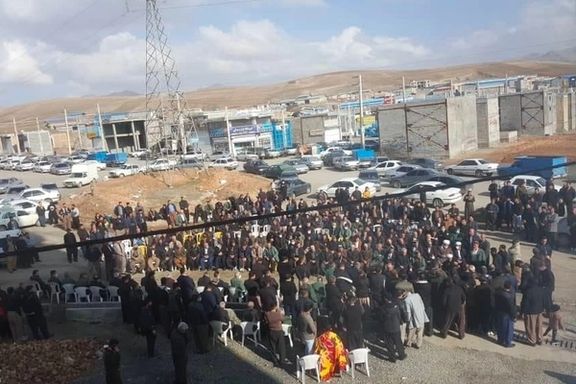
Residents in the small town of Kamyaran gathered to protest the execution of Heydar Qorbani, a Kurdish political prisoner who was hanged at dawn on Sunday.
Hundreds of protesters gathered outside his home chanting “A martyr never dies”, according to a video published by a human rights monitoring group.
Earlier, hundreds of people in Kamyaran had signed a letter addressed to Supreme Leader Ali Khamenei asking him to commute Qorbani’s death sentence.
He was arrested in October 2016 after several members of the Islamic Revolutionary Guard Corps (IRGC) were killed close to Kamyaran.
Among the charges against him were the murder of three IRGC members and "taking up arms against the state" through membership in the Kurdistan Democratic Party of Iran (KDPI), an armed opposition group. During his trial, he had rejected any connection with any political party, carrying arms, and involvement in the killings.
The government has intensified arrests and disappearances of Kurdish citizens and activists in recent months.
A human rights group has published an audio recording in which Qorbani talks about his torture in prison, including hanging from the ceiling while his head is put into a plastic bag.
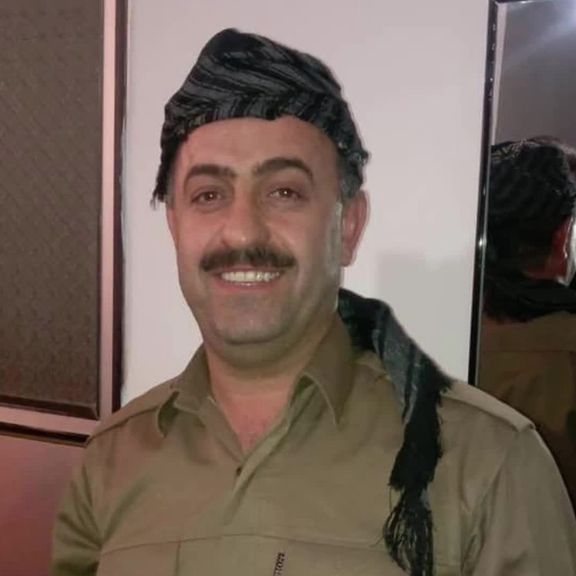
The Islamic Republic has executed Heydar Qorbani, a Kurdish political prisoner Sunday after appeals by the public and rights organizations failed to save his life.
According to Kurdisatn province justice department, Qorbani was executed at dawn on December 19, in Sanandaj prison after years of contention between human rights activists and Iran’s hardline Judiciary.
Qorbani had been arrested back in October 2016 after several members of the Islamic Revolutionary Guard Corps (IRGC) were killed close to his hometown, the small city of Kamyaran.
Among the charges laid against him were the murder of three IRGC members and "taking up arms against the state" through membership in the Kurdistan Democratic Party of Iran (KDPI), an armed opposition group. During his trial, he had rejected any connection with any political party, carrying arms, and involvement in the killings.
The government has intensified arrests and disappearances of Kurdish citizens and activists in recent months.
In 2018, the Iranian state-run Press TV aired by Qorbani for being an accessory to murder, and late in 2019, he was given the death sentence as well as a total of 90 years in jail plus 200 lashes.
However, according to his lawyer and Amnesty International his tainted confessions were obtained under torture, and he was not given a fair trial.
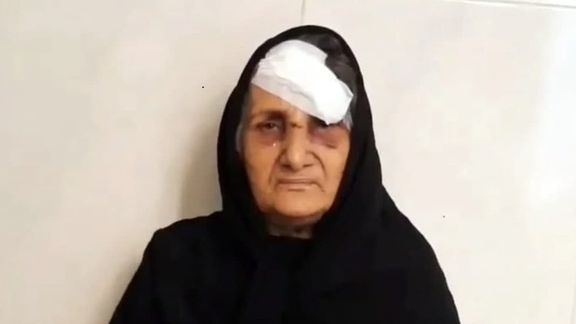
The 70-year-old mother of a blogger who was allegedly tortured and died in prison in 2012 has accused Iran's state television of faking a video to discredit her.
In a video posted to social media last week, Gohar Eshghi said she was pushed over steel bars on the side of a street by two motorcyclists as she was going to her son's grave. With large bruises under her eyes and a bandaged forehead, Eshghi said one of the motorcyclists dismounted, pushed her, and she passed out: "When I came to, I was in hospital."
A week later, on December 16, Iranian state television aired a video, which it said was from close-circuit cameras (CCTV), showing a woman resembling Eshghi from behind, swaying, staggering, and falling over the steel bars. No motorcyclists were in sight, but passers-by rushed to help, and called an ambulance.
The television program, 20:30, also interviewed the ambulance driver, and witnesses who said they saw Eshghi faint and fall.
"They are lying,” Eshghi told New York-based rights activist Masih Alinejad on Instagram following the TV program. “Why didn't they [show footage] from these cameras the first day? Why didn't they check their security cameras when my Sattar was killed to find my son's murderer?"
Some posts on social media claim the quality of the images suggests they were taken by “a professional camera” and not CCTV.
Eshghi, who holds Iran’s Supreme Leader Ali Khamenei responsible for her son Sattar’s death, has set up a foundation in her son's memory that she says she had been under pressure to shut down. She was detained for five days in June.
Eshghi's 35-year-old son, Sattar Beheshti, a laborer, was arrested by police in 2012 due to his blog, My Life for My Iran, and social media posts. Beheshti's last blog post published a day before his arrest was a critical letter addressed to Supreme Leader Ali Khamenei in which he called Iran's Judiciary "a slaughterhouse" that aimed to terrorize the Iranian people into submission and silence. He also claimed he had been threatened by “intelligence bodies”to shut his “big mouth.”
Charged with security offences, he died in detention a few days after his arrest, and after he had submitted a signed complaint that he had been tortured.
A postmortem identified the cause of his death as internal bleeding. Beheshti was buried by security forces in his hometown of Robat Karim, about 30 km from Tehran. Authorities denied allegations of torture and attributed his death to "natural causes", but 41 political prisoners at Evin prison signed a letter claiming his injuries had resulted from “hanging from the ceiling and severe beating.”
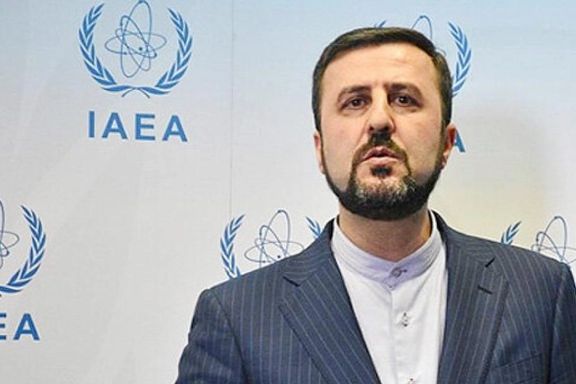
A top Judiciary official in Iran has defended the death penalty for minors, saying it is neither illegal nor against any of Iran’s international commitments.
The Secretary of Iran's High Council for Human Rights, Kazem Gharibabadi, made the remarks in reaction to a recent human rights resolution passed by United Nations General Assembly condemning the "alarmingly frequent" use of capital punishment, including against juvenile offenders, torture, and arbitrary arrests in Iran.
Gharibabadi, a former ambassador to international organizations in Vienna, said the executions of juveniles do not violate human rights, underlining that there is no compulsory international law prohibiting the practice.
Although no official data about the number of Iranian children in death row is publicly available, the UN has criticized Iran as one of the most prolific executioner of juveniles in the world, with some reports putting the numbers at about 100 a year on average.
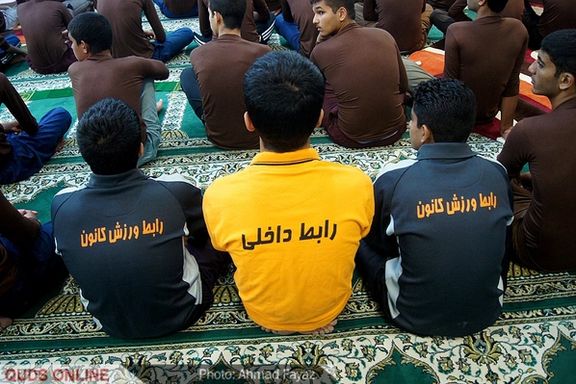
“There are currently over 85 juvenile offenders on death row in Iran, sentenced to death following processes that significantly violate international human rights law. The majority of those sentenced to death are from marginalized groups or are individuals who themselves have been victims of abuse”, read part of a November statement by the Office of the High Commissioner for UN Human Rights.
UN human rights experts issued the statement to condemn the execution of Arman Abdolali, who was convicted for an alleged murder committed when he was 17. Arman was executed at dawn on November 24 after being transferred to solitary confinement the previous evening.
While the death penalty is not officially banned by the International Covenant on Civil and Political Rights (ICCPR) or virtually any other universal treaty, there are several instruments in force to push states to abolish capital punishment, according to the Death Penalty Information Center, a Washington-based non-profit organization that focuses on disseminating studies and reports on the capital punishment.
The ICCPR -- one of the three international treaties collectively referred to as the International Bill of Human Rights — mandates that the death penalty “shall not be imposed for crimes committed by persons below eighteen years of age.”
In most countries a minor is defined as a person under the age of majority – generally 18 -- which legally demarcates childhood from adulthood. Adulthood in the Islamic law (or Sharia) is the time when someone reaches puberty or maturity. According to Sharia, people are considered innocent before that and don’t have full responsibility and Islamic law is not applied to them. However, the concept of minor is not clearly defined and differs based on the interpretation of different Islamic jurists.
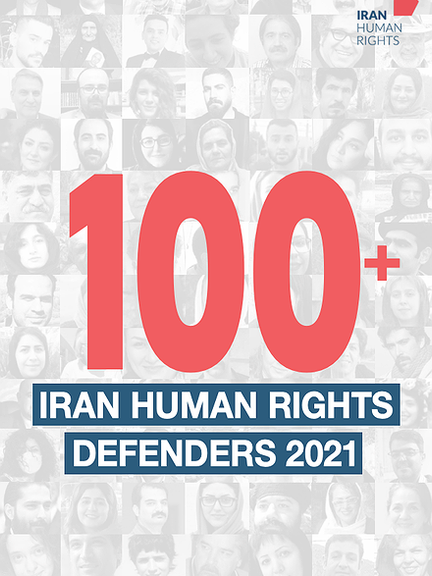
An Iranian human rights group says rights defenders in Iran in 2021 received a total of 479 years in prison and were subjected to a host of inhumane treatments.
Human Rights in Iran, based in New York, in a report issued on December 16, titled ‘100 Iran Human Rights Defenders 2021’, has provided updates on the status of 100 human and civil rights defenders who are either in prison, released on bail or were subjected to harassment by authorities. Those who were convicted this year received a total of 479 years in prison and 907 lashes.
In every case, the accused were tried without due process of law, being either denied a lawyer or forced to accept government-approved attorneys, without full access to case material.
Iran Human Rights Director, Mahmood Amiry-Moghaddam said: “The world must not be a silent witness to the high price Iranian human rights defenders are paying for fundamental rights.”
Human rights defenders, activists and families of victims who received sentences or were subjected to harassment and intimidation doubled in 2021, the report says. The 100 people profiled in the report are “lawyers, journalists, teachers, women’s, workers and civil rights activists, environmentalists, minorities and whistleblowers.”